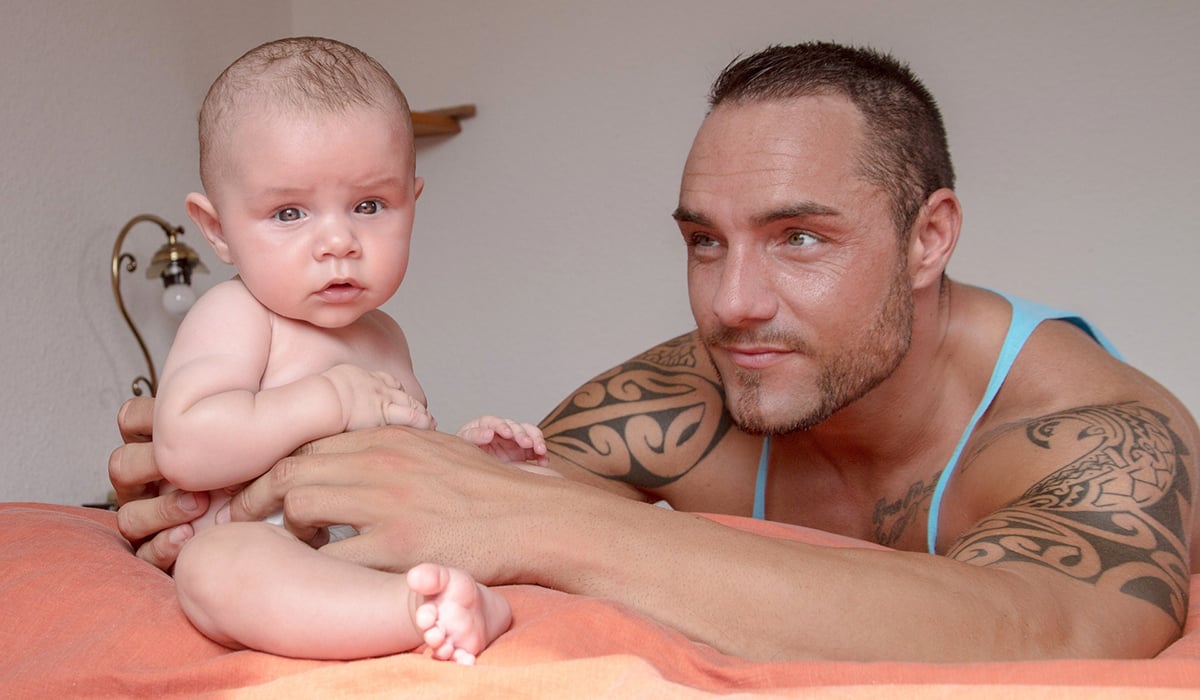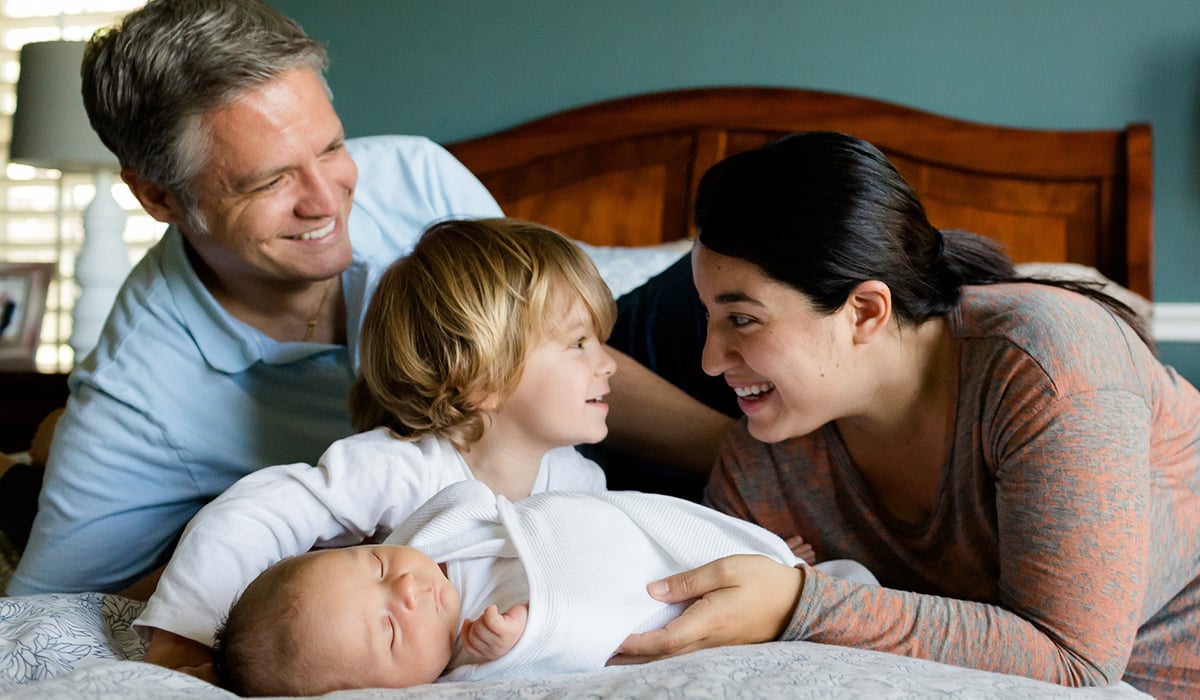Donor Eggs – Will the Baby Look Like Me – Genetics 101
We are using donor eggs, will the baby look like me? My newborn baby doesn’t look like my donor or my partner! You have dreamt about having a baby since you were a young girl. However, your dreams became unreal with your infertility diagnosis. Originally, perhaps, you did not see a way out, but you ultimately decided to utilize donor eggs to conceive through IVF.

You finally got pregnant, after a few trials, and gave birth to your baby. You managed to accept the fact that you wouldn’t be genetically connected with your child. After all, you carried that baby for nine months – and the child was yours. The thought that the baby was still half your partner’s, genetically, was somehow comforting.
Yet at this moment, you’re watching your newborn, and the baby doesn’t seem to look like your partner. The baby doesn’t look like your donor either. How come? Why doesn`t the donor egg baby look like me? What should you think of that? Is there any genetic connection at all? Is there any hope for your child to look like your partner down the road?
Guessing Game with Donor Eggs – Will the Baby Look Like Me?
In genetics, guessing is the name of the game. Some predictions are based on the traits of biological parents. However, eventually, it’s not possible to know with certainty what features a baby will have.
In genetics, the uncertainty applies to everybody. Even couples conceiving naturally may have a baby looking primarily like one parent rather than the other or even have a baby who doesn’t seem to look like either of the biological parents.
The DNA Games and Donor Eggs – Will the Baby Look Like Me?

DNA in the human cells is responsible for the way various features are inherited. The DNA represents a collection of genes that are passed on to a baby during conception. Human DNA is comprised of 46 chromosomes, with each parent passing on 23 out of 46. Geneticists estimate there are 60,000 to 100,000 genes in everyone’s chromosomes. If you think about all the different genetic combinations, one pair of parents can have 64 trillion different children.
Furthermore, most of the characteristics your baby has acquired are the result of interaction among various genes. Certain characteristics are expressed when genes’ combinations are increased, reduced, or turned off. The very variability, complexity, and scope of genetics make it impossible to know with certainty how your baby will look like before being born. Picking a donor who resembles you closely does not guarantee that the physical characteristics you are wishing for your baby will be conveyed.
Nevertheless, there are some ways to make estimates on likely traits in advance. Everyone inherits two forms of each gene: one recessive and one dominant. For example, take eye color where brown eyes represent the dominant gene of eye color. If your donor and partner both have eyes of color brown, the probability of your child inheriting brown eyes is higher than them getting blue eyes. If both your donor and your partner have blue eyes, it would be impossible for your child to be born with brown eyes.
The genes combination that your child expresses, whether dominant or recessive, makes it possible for your baby to physically look not like your donor or your partner, but as a unique combination of both.
Genetics Is Not Everything

While genetics is extremely variable. It’s possible you had an impact on your baby’s physical traits while the baby was inside your womb.
Pregnant females are warned against smoking and drinking alcohol because doing so can have serious consequences for child development. However, there are further ways a woman’s pregnancy may impact the baby inside their womb.
How you felt, what you listened to, how nutritious your diet was, how you spoke and what you thought during the pregnancy? All that can impact your baby’s long-term health and their response to different stimuli down the road.
Inherited Tendencies
It is important to keep in mind that your child’s genetics is not the single factor determining what personality traits and talents your child will possess. Your child’s exposure to different opportunities and the overall environment play a crucial role.
For instance, children who have perfect pitch are up to four times more likely to have a relative with a great singing voice than those whose relatives had average singing voices. At the same time, as research proves, most children with perfect pitch went through voice lessons before they turned 6.
Children that inherit a tendency towards risky behavior will be less of a dare-devil variety. Less than they could have been if they were influenced by their current environment not to engage in risky activities. Children genetically pre-disposed for great intelligence may not become as smart if they are missing proper education.
Even if a child has a genetic inclination to be particularly talented in a specific area, it is obvious that the talents need to be trained to fully develop.
Whether a child will live up to their full potential does not depend on genetics only. It also depends on the encouragement of talents to succeed. Likewise, a child’s physical and mental well-being depends not only on their exercise and eating habits. It also relates to the past experiences they can draw self-assurance from.
Physical Appearance
Just because a child may not have a physical appearance of their parents does not imply they cannot emulate traits from living with their parents. Children tend to adopt vocal and facial expressions similar to their parents’.
Even if a baby does not look like your partner in the very beginning, it does not mean your child won’t look similar to your partner later on. The manifestation of genetics is a process lasting throughout the whole life.
For instance, a child born with blonde hair may eventually get their hair turning brown. The genes responsible for hair color are not constant during our lives.
Changes in gene manifestation may cause other physical traits to adjust as well. As you may already have concluded, when it comes to your baby’s physical traits and genetics, it is wise to just sit back and enjoy your ride.
Your Baby Is Yours

The late prominent physicist Stephen Hawking argued that our human evolution has advanced beyond human biology. Over thousands of years, humanity’s biological evolution has decelerated. Although no noticeable change happened to our DNA, the knowledge passed on from every generation has still boosted exponentially.
Hawking estimated the amount of useful data in human genes at about 100 million bits, while a major national library may contain up to 10 trillion bits of data. Hence, the amount of information we obtain from our environment and history is a hundred thousand times greater than that we get from our DNAs.
Donor Eggs – Will the Baby Look Like Me?
Genes provide the primary roadmap for your baby. However, they do not determine the type of person your child will become. Your love, beliefs, and nurturing will have the highest impact on the kind of human your child will be.
In the first place, remember that your partner and you have brought a new life into the world. You fought hard for it. This baby is yours, irrespective of the genes or physical appearance.